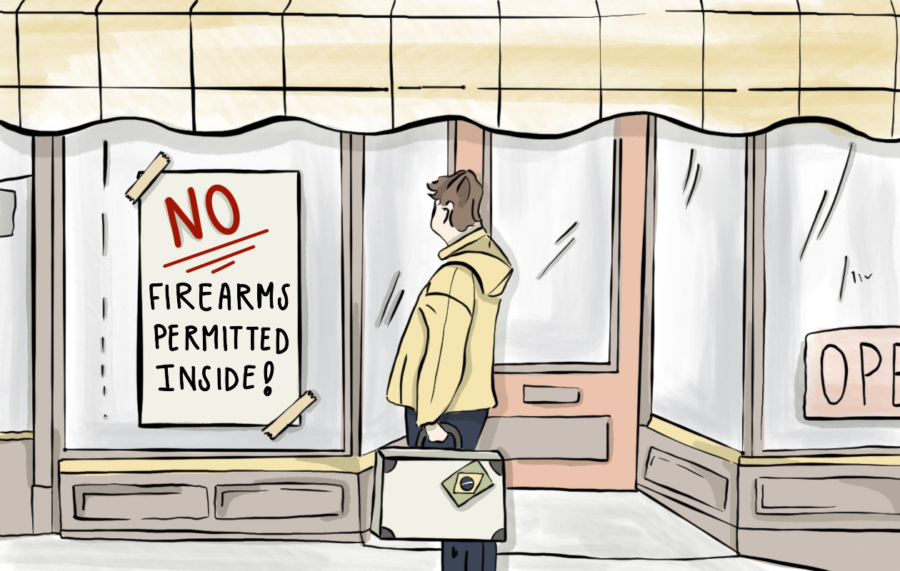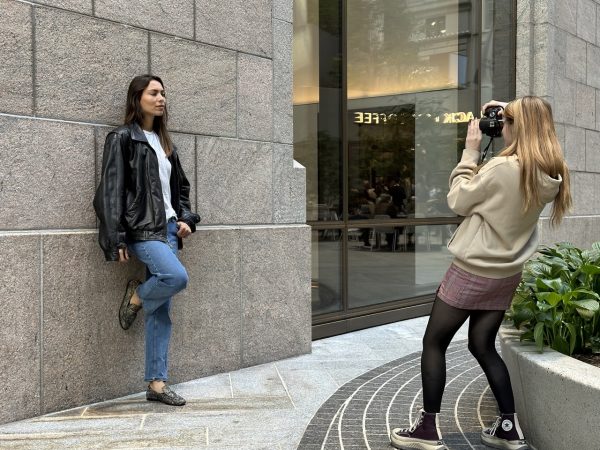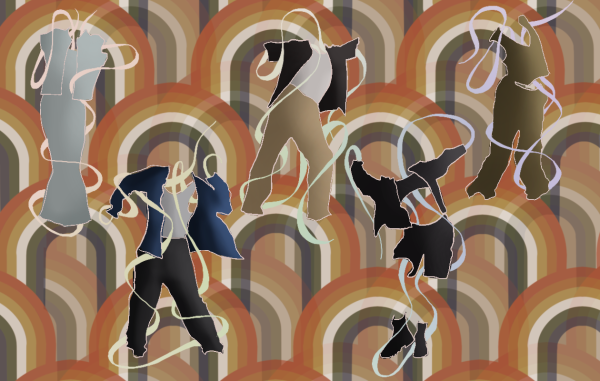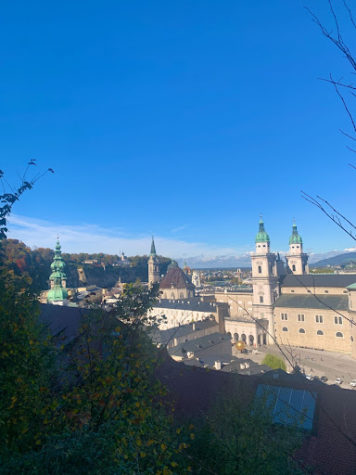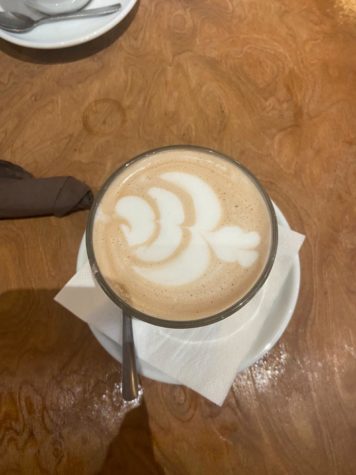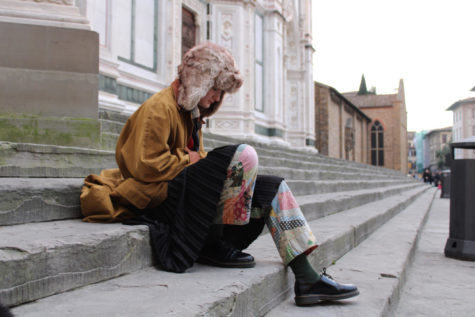finding home abroad: brazilian student perspectives on living in the u.s.
If you have ever been to Kent before winter break is over, you know it feels like a ghost town. Therefore, I invite you to picture this: my Brazilian self, coming from one of the biggest cities in my country, ending up in Kent at the beginning of January.
Aside from being one of the only people in Kent, I was shocked by the snow and freezing wind, unlike the warm summer days I was living in Brazil.
At first, I thought: “That’s it. I’m going back.” Then, when I got to know the city, I thought: “That’s it. I’m going back.”
Jokes aside, Kent is a small city, and it can be a big hit for someone that has lived in a big city all their life, but it was different for me because I was far away from home in a whole new country.
During one of my first days here, a friend and I decided to take a stroll through town, and at a convenience store door, I saw a sign that indicated: “ATTENTION: NO GUNS ALLOWED PAST THIS POINT.” That was when it hit me: I am in the USA.
Back home, there is a highly regulated and expensive process for a civilian to acquire a gun in Brazil. Therefore, many people choose not to own one at all. This event prompted me to start paying attention to things I never cared about before in Brazil, and I noticed how cultural differences influence how Brazilians and Americans behave in their daily lives.
Aside from gun signs, one of the first cultural shocks was interacting with other people. If we are being completely honest, people in Kent are very welcoming compared to other places I have been in the U.S. However, the majority of Brazilians are very welcoming, talkative and sometimes even touchy. Not having that instant “warmness” was something that hindered me from connecting to other people.
It was part of the adaptation process, realizing that as almost everyone I met here was either at or close to home. They didn’t have this longing for connection that I did; therefore, I would have to make some effort to try and have a friendship with them, which is one of the many struggles international students go through.
But, being fair, as an “outsider,” I couldn’t expect people to go out of their way just because I was feeling shy. For the first time ever, I got over my anxiety and called people I thought were cool to hang out with me, and that’s when I became closer to my current friends.
Brazilian Kent State University junior Melyssa Calegari Rein says that her experience as an international student has come with many cultural shocks.
“As a person that has many allergies, I always relied a lot on the Public Health System (SUS) in Brazil, and here I am scared of having any reactions and not being able to afford the cost of medical care,” Rein said.
Not having access to free health care is a scary subject for everyone, but especially for those who had it all their lives. Taking care of your health goes without saying, even if you are not an international student, because the cost of medical care is overwhelming to most people.
Rein also commented that if she needed to go to the doctor, she would rather postpone her medical appointments and exams for when she is back home.
In contrast with the negative side of medical care, Rein said that in some ways, the US is a country that can feel safe.
“Every time we receive the Amber alert notification I feel anxious, but it is good to know that literally everyone will be aware of what happened, which makes me think there is more chance for the child to be recovered,” Rein said.
Brazilian Kent State University fashion design major Anne Louise Pesch Kruklis also commented about feeling safer on the streets in Kent. “When I am walking to class I feel safer with my belongings than in Brazil, because there, depending on the neighborhood, there is a real chance of getting robbed,” Kruklis said.
If you are an international student, it doesn’t matter where you are, comparing the ups and downs of your home country and your new country is inevitable, but your experiences are sure to shape you.
As advice from my experience to future international students, despite dealing with multiple cultural differences and undergoing several adaptation processes in the U.S., it is undeniable that it is also a part of me now.
Creating memories and finding your people is the key for a new country to feel like home, and that will definitely require you to step out of your comfort zone and possibly operate differently from everything you have ever known. And there is an irony of having more than one place to call home yet never feeling completely at home again because it is not a single place anymore.
But looking back on the semester, I wouldn’t change a thing about this experience. It is an invaluable opportunity, and I assure you that Kent also has a place for you to call home.
Support Student Media
Hi! I’m Catie Pusateri, A Magazine’s editor-in-chief. My staff and I are committed to bringing you the most important and entertaining news from the realms of fashion, beauty and culture. We are full-time students and hard-working journalists. While we get support from the student media fee and earned revenue such as advertising, both of those continue to decline. Your generous gift of any amount will help enhance our student experience as we grow into working professionals. Please go here to donate to A Magazine.

